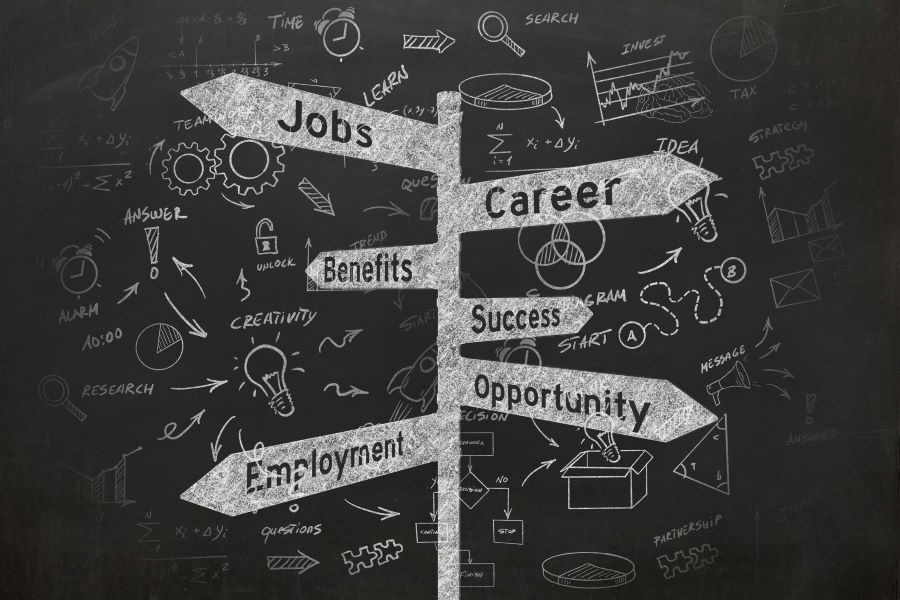Tips for a Successful Career Transition

Although every job search presents its own set of unique challenges (especially with the additional COVID factor or chaos of the holidays), our Ayers career coaches have found that there are overarching rules of thumb that transcend seniority and industry. It all begins with creating the right mindset and gaining perspective on your position: Be clear on your goal! Develop a daily routine that creates a forward momentum in your search.
Here are a few tips and tricks to help you along your way:
BUILDING A RESUME
Once you’re prepared mentally, focus on getting your marketing materials in order (i.e., resume/CV, LinkedIn, exit statement, 30-second commercial, and networking profile). Start with your resume/CV – think of your summary statement as PRIME real estate (location, location, location, right?). Realistically most recruiters or hiring managers will only read the top 2-3 inches of your resume, so be sure to concentrate on quantifying your outcomes instead of relaying a job description.
When it comes to your experience, avoid the skills “checklist” feel and make sure your accomplishment bullets can answer the question, “What’s in it for them?” using the Challenge. Action. Result. (CAR) technique.
NETWORKING
Then comes everyone’s favorite part: networking. Did you know that over 80% of all opportunities result from networking? Experts predict that because of social media, instead of six degrees of separation, we are all connected by just over 3 degrees! Meaning, you never know who your immediate network may know or have as a contact. Use LinkedIn proactively as an outbound tool to identify target companies and people who work there. Ask for 10-15-minute information meetings and use your networking profile (instead of your resume) as an outline for your discussion.
You’ll also want to prepare your 30-second commercial or marketing statement beforehand. The key for this meeting is to be clear and succinct: Who are you? What do you need help with? What insights and feedback can they provide? Do they know companies, people, or recruiters that may lead you closer to your goal?
INTERVIEWING
As you start to schedule interviews, you’re going to want to be prepared for all occasions. Research the company and person(s) interviewing you and be ready to have multiple rounds of phone, video, and AI interviews. Keep in mind that in today’s changing environment, video interviews are especially common. Hone your Zoom and MS Teams skills, ensure that your technology is working, and set up in a quiet space where you won’t be interrupted or distracted.
Practice your “tell me about yourself” question until it becomes second nature, establish your value, and be able to relate your expertise with some exciting accomplishment stories to back it up.
Most of all, try to relax and keep it conversational! The interview isn’t just about whether you’re a good fit for the organization—you ALSO get to ask relevant questions to learn more about them. Remember to show interest and follow up with a thank you email within 36 hours of the interview.
The truth is, looking for a job is a full-time job – AND you don’t have to go at it alone: Ask for help! Get a career coach! Practice self-care! Build a support system of friends and family to keep you accountable! You may even discover new skills and strengths, friends, and silver linings along the way.
To learn more about how you can build the skills you need to conduct a successful job search, contact Ayers today at hercinfo@ayers.com
Thanks to HERC partner, The Ayers Group, for producing this blog post! Ayers is a Talent Management consulting firm that helps universities, organizations, and individuals with career transition services, outplacement, professional development, leadership development, executive and team coaching.
Want CV/resume and cover letter tips? Download our free ebook, How to Apply for Higher Education Careers (Revised Edition).
